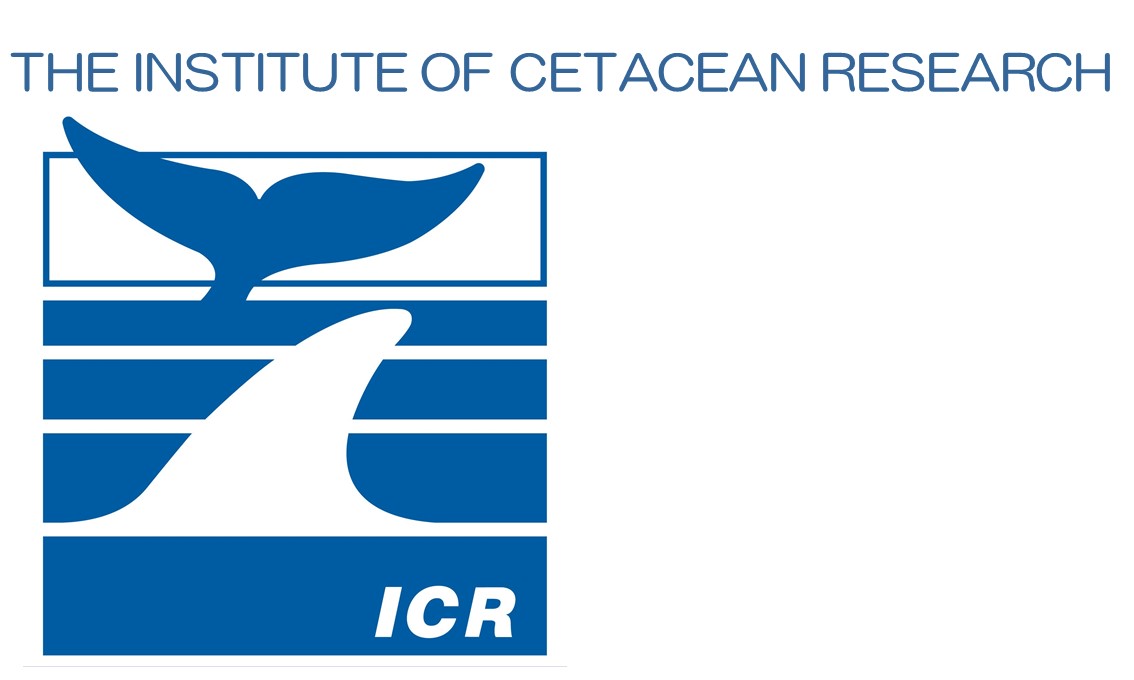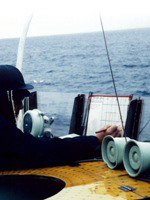- You are here:
- Home>
- English Sitemap>
- RESEARCH>
- Origin and Purposes
Origin and Purposes
The Institute of Cetacean Research (ICR) was established in 1987 as a ‘public-benefit corporation’ in accordance with Japan’s Civil Code. It was established as a foundational judicial person by the Ministry of Agriculture, Forestry and Fisheries, Government of Japan, Directive 62 Suikai No. 3458.
The objective of the ICR was specified in Article 3 of the ‘Act of Endowment of the Institute of Cetacean Research’ as follows:
‘The objective of this research institute is to contribute to the appropriate management and use of fishery resources by conducting experiments/research and surveys on cetaceans and other marine mammals, as well as the examination of the international situation regarding cetaceans and other marine mammals’.
The activities of the ICR were specified in Article 4 of the Act as follows:
To accomplish the objective specified in the preceding Article, this research institute conducts the following activities:
(1) Experiments/research and surveys on cetaceans and other marine mammals;
(2) Collection and dissemination of reference materials on cetaceans and other marine mammals;
(3) Examination and collection, as well as dissemination of information on the international situation regarding cetaceans and other marine mammals;
(4) Other matters necessary to accomplish the objective of this research institute’.
The establishment of the ICR in 1987 was associated with what has been commonly referred to as the IWC’s Commercial Whaling Moratorium (hereafter ‘Moratorium’), adopted in 1982. Paragraph 10(e) of the Schedule to the International Convention for the Regulation of Whaling(ICRW) reads as follows:
‘Notwithstanding the other provisions of paragraph 10, catch limits for the killing for commercial purposes of whales from all stocks for the 1986 coastal and the 1985/86 pelagic seasons and thereafter shall be zero. This provision will be kept under review, based upon the best scientific advice, and by 1990 at the latest the Commission will undertake a comprehensive assessment of the effects of this decision on whale stocks and consider modification of this provision and the establishment of other catch limits’.
The text makes it clear that the Moratorium was intended as a temporary suspension of commercial whaling, with a built-in deadline for review. It was adopted by the IWC to address concerns about the lack of scientific knowledge at that time, and it imposes a duty on the Commission to conduct an undefined ‘comprehensive assessment’ of the effects of the zero catch limits ‘by 1990 at the latest’. Once the ‘comprehensive assessment’ was conducted, it indicated that the establishment of catch limits other than zero would be possible.
The implication of this text and discussions surrounding its adoption was that further scientific research on whales was required to provide the best scientific advice needed to complete the comprehensive assessment. One of the primary species identified by the Government of Japan (GOJ) as a future target for commercial whaling was the Antarctic minke whale - the only species being taken in the Antarctic at the time of the establishment of the Moratorium. The first task assigned to the ICR was thus to design and implement what was called the ‘Japanese Whale Research Program under Special Permit in the Antarctic (JARPA)’ with a focus on the Antarctic minke whale, the most abundant baleen whale species in the Antarctic at that time. The lethal component of JARPA would require the GOJ to issue a special permit under Article VIII of the International Convention for the Regulation of Whaling (ICRW). The overall context of JARPA was to contribute to the work of the IWC Scientific Committee as part of the ‘review’ and the ‘comprehensive assessment’ envisaged in Paragraph 10 (e) above.
JARPA was initiated by the ICR as a two-year feasibility survey in the austral summer season 1987/88. It was initiated under the Minister of Agriculture, Forestry and Fisheries, Government of Japan, Directive 62 Suikai No. 4144-46. The full JARPA program started from the 1989/90 season.
In the period (1987-2019), apart from the JARPA, the ICR designed and implemented several other Special Permit Whale Research Programs in the Antarctic and western North Pacific.
The ICR was established in 1987 to conduct scientific research on marine mammals, particularly large whales.
In particular it was established to respond to the adoption of the IWC moratorium on commercial whaling.
The IWC was concerned about the lack of sufficient scientific knowledge for the assessment of whales and management of commercial whaling.
The first step undertaken by the ICR was to develop JARPA - the Japanese Whale Research Program under Special Permit in the Antarctic.
Additional programs were later developed.




